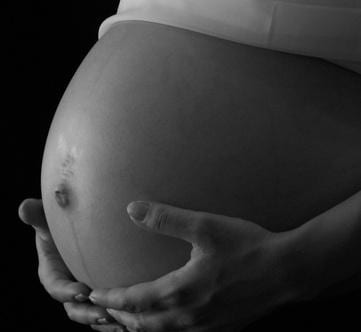Constipation during pregnancy is one of those unfortunate normal pregnancy symptoms that can occur anytime during the pregnancy. Typical causes include hormonal changes, taking iron supplements and pressure on the digestive system from the growing baby. For some women, constipation relief comes easy; for others it can be a battle throughout the entire pregnancy.
Fiber
Eating more fiber will help relieve constipation. The American Pregnancy Association recommends that 25 to 30 g of fiber be consumed every day. If an increase in fruits and vegetables, whole-grain foods and prune juice do not bring relief, try high-fiber granola bars and other foods available at the grocery store. Read the product labels when shopping.
Water
Drink more water if you are constipated. On average, a woman needs more water when she is pregnant. Pregnant women should drink at least 10 to 12 glasses of water or other fluids every day. If you are constipated, try increasing this amount. Keep a water bottle with you at all times to make drinking water a habit throughout pregnancy.
Exercise
Exercise helps move food through the digestive track. Although you may not feel like doing much exercise, simply walking for a few minutes several times a day can help. Another option is to take a pregnancy water aerobics class. Being submerged in the water helps move the baby’s position, which may relieve pressure on the digestive tract.
Medications
Do not use any laxatives, mineral, stool softeners or any other over-the-counter medications to relieve constipation while pregnant without first consulting your doctor. Side effects of these medications during pregnancy can include cramping, uterine contractions and dehydration. Consult your doctor if you are taking iron supplements, as these may be the cause of your constipation.
Complications of Constipation
It is better to get ahead of constipation and treat the symptoms immediately. Long-term constipation is more than a little uncomfortable. It also can lead to painful hemorrhoids, fissures in the anal cavity and impaction. If you do not get relief from an increase in fiber, water and exercise, talk to your doctor for further advice.
Photo Credit
- Waiting image by Kristin Skipper from Fotolia.com





